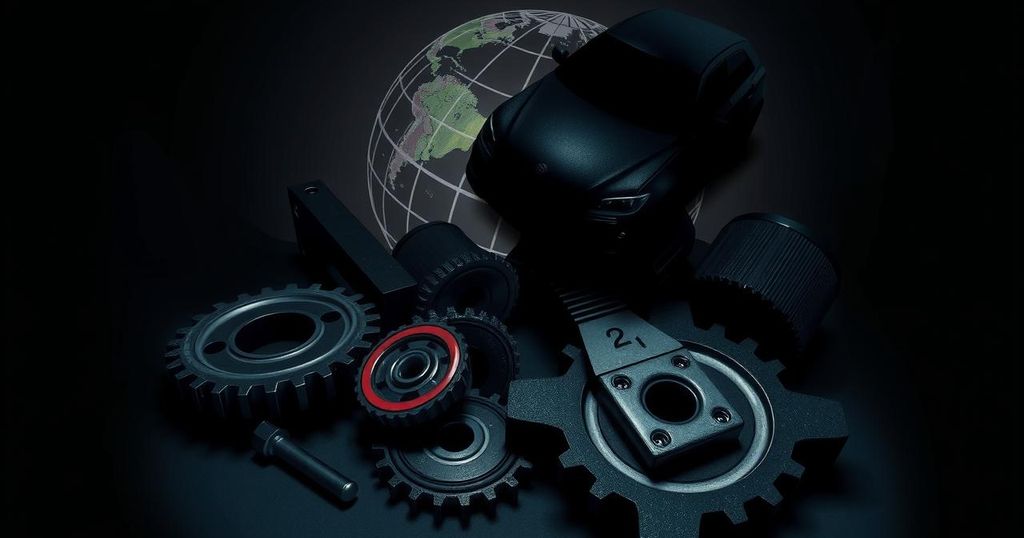Trump’s Threats Impact South Africa’s Automotive Trade Relations

Trump’s threats about the AGOA renewal jeopardize South Africa’s $1.9 billion vehicle exports to the U.S. The auto industry, vital for employment, could face severe consequences if the trade deal lapses by 2025. Stakeholders warn of potential mass job losses and industry struggles due to Trump’s focus on protecting U.S. interests amid complicated relations between South Africa and the U.S.
South Africa, exporting vehicles worth $1.9 billion annually, faces uncertainty as U.S. President Donald Trump threatens the renewal of the African Growth and Opportunity Act (AGOA). Neil Diamond, President of the South African Chamber of Commerce in the U.S., expressed doubt about AGOA’s renewal prospects. This trade agreement allows tariff-free access for many African products, significantly benefiting South Africa’s auto industry, which contributes 22% to its U.S. exports.
In South Africa, seven major automakers, including BMW and Ford, employ half a million individuals across the industry’s supply chain. The AGOA deal, which is set for renewal in September 2025, poses a risk of disaster for South Africa if it lapses. “It would be a big impact in the sense that the United States is the third-biggest export market for us,” said Billy Tom, head of The Automotive Business Council.
Tom estimates that 86,000 jobs depend directly on AGOA, while an additional 125,000 jobs are tied to related subcontractor activities. Detrimental effects on the automotive component supply chain could threaten the industry’s survival in South Africa, according to Renai Moothilal, head of the National Association of Automotive Component and Allied Manufacturers. “It will have a significantly detrimental effect on the supplier base, and over the long term, I think we could expect that the industry does not survive in South Africa,” he stated.
Trump’s administration may also react against South Africa due to its recent land reform laws. Elon Musk has criticized these “racist laws” and supported claims of persecution against white landowners. Moreover, South Africa’s alignment with Russia and China and its stance against Israel further complicates its relationship with the U.S.
“President Trump could cite the clause in the AGOA Act, which says that beneficiaries have to maintain, or their activities have to be in line with U.S. security and foreign policy interests,” said Richard Morrow from the Brenthurst Foundation. Historical precedent exists, as Biden excluded countries from AGOA benefits in January 2024.
While Trump may wish to protect American automotive interests—a key area for his voter base—it remains unclear whether his stance is punitive toward South Africa or merely a threat mechanism. He could potentially exempt only the auto sector from AGOA benefits, impacting primarily foreign manufacturers. The irony lies in that most affected firms are based in U.S. allied countries like Germany and Japan.
Trump’s rhetoric has created widespread uncertainty in South Africa’s automotive industry, destabilizing investment confidence and future growth prospects. Isaac Khambule, a political economics professor, highlights that the predominant demographics of South African business ownership are aligned with Western interests, spelling potential diplomatic ramifications amid trade discussions.
The threats from President Trump regarding AGOA renewal pose significant risk for South Africa’s auto industry, which relies heavily on tariff-free access to the U.S. market. The dependence on AGOA for employment and economic stability makes the potential lapse of the agreement critical. Stakeholders fear widespread job losses and industry decline should punitive measures be enforced, reflecting the intertwined nature of international relations and trade policy.
Original Source: www.mykxlg.com




